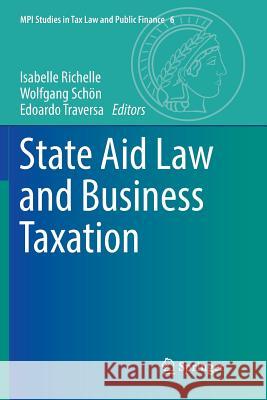State Aid Law and Business Taxation » książka
topmenu
State Aid Law and Business Taxation
ISBN-13: 9783662571057 / Angielski / Miękka / 2018 / 282 str.
Kategorie:
Kategorie BISAC:
Wydawca:
Springer
Seria wydawnicza:
Język:
Angielski
ISBN-13:
9783662571057
Rok wydania:
2018
Wydanie:
Softcover Repri
Ilość stron:
282
Waga:
0.41 kg
Wymiary:
23.39 x 15.6 x 1.55
Oprawa:
Miękka
Wolumenów:
01
Dodatkowe informacje:
Wydanie ilustrowane











